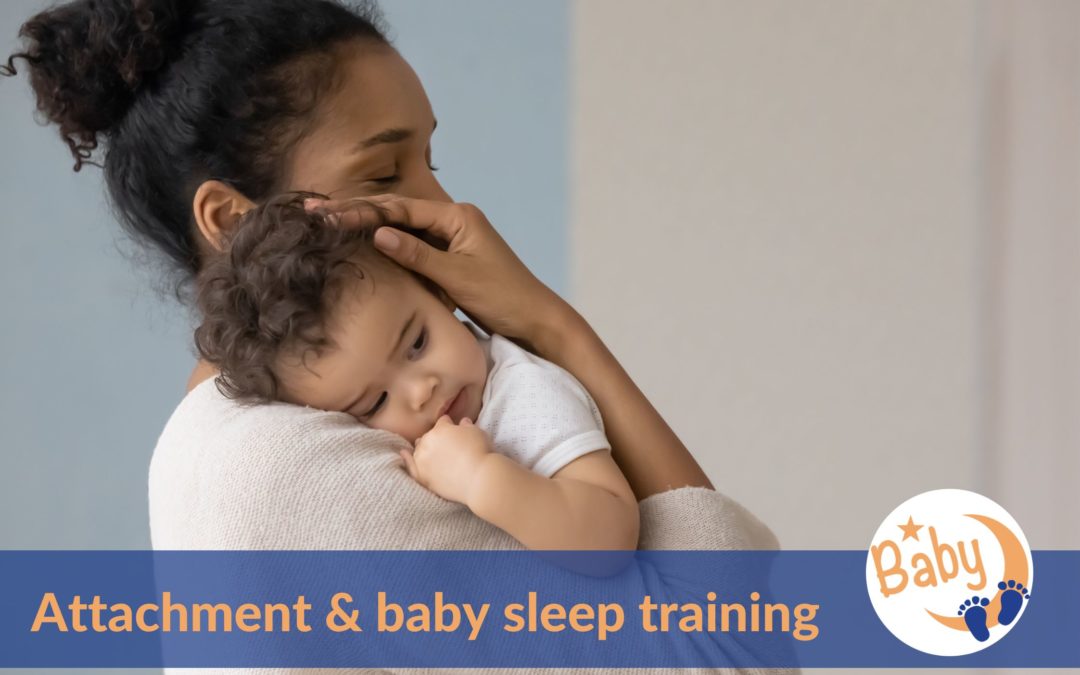Attachment & baby sleep training –
Dr. Gabor Mate, the famous American-Hungarian psychologist whose research has been focused on trauma, addiction and child attachment thinks that:
“the most essential template for the emotional development of the child as well as for the brain’s healthy physiological development is a nurturing relationship with mutual responsive adults.“
This actually confirms the original theory of attachment from the 1950s explained here.
But Dr. Mate has a theory on baby sleep training as well and claims that:
“what a child understands when he is not picked up after crying is that its emotions don’t matter.”
In this context, he talks about a 6-week-old baby (himself) who was not picked up by his loving mother to be fed after extended crying at night because “the doctors told her that”. In his interviews he also refers to the hunt-together tribes who did not put their kids down at all because this was “the state of nature”. I am wondering who decides what the “state of nature” is? ![]()
Although I don’t want to start a controversy with a famous academic doctor (who actually likes to be questioned ![]() ), I would like to express my own (counter)opinion on this matter.
), I would like to express my own (counter)opinion on this matter.
First of all, most sleep consultants do not use baby sleep training for newborns (and certainly not the cry-it-out method at such a young age). In my opinion, in the above-mentioned context, the 6-week-old baby would certainly need his mother’s response to his cry at night and even a feed on demand approach. The fourth trimester or how the first 3 months of a baby’s life is also called, is a time for cuddling and closeness between mom and her baby, when the little one is struggling to adjust to a colder, out of the womb world. During this time, we can expect fussiness and crying from a baby and very likely, exhaustion for the mother. Newborn babies are learning to adjust to life outside the womb where it was warm and cosy. And their main way of communication is by crying. But at the same time, this can also be an opportunity for mom and her baby to get to know each other better and re-connect in the new world. In other words, the newborn phase is not the right time for baby sleep training, in my opinion. The best we can do during this phase is to prepare the optimal conditions for the baby, organise a sleep friendly environment and follow a flexible age-appropriate routine with biological sleep windows, awake times, full feeds and observing baby tired-signs – basically set the foundation of healthy sleep habits for the baby.
Check the Newborn Baby Sleep Guide for best guidance on baby sleep during the first 3 months of life!
However, after the 4-month-mark when baby’s sleep architecture changes significantly (their sleep cycle starts to shape around 45 minutes) and there is a cognitive, physical and emotional developmental leap happening at the same time, we can carefully start to apply different gentle behavioural sleep techniques to help babies connect sleep cycles and manage longer stretches of sleep at night, according to their natural biorhythm. These methods are mostly in-room settling techniques for babies who are very much supported by their primary caregivers and not left alone. They all involve the proximity and the touching of a loving parent and some crying as well but, if done with care, calm and patience, could set a healthy sleep foundation for life.
Biologically correctness means also to consider baby’s biological clock and circadian rhythm, their night & daytime sleep needs, to notice their tired signs and put them to bed during their natural sleep windows, when the sleep pressure is high or the sleep hormone starts to rise. This also means waking the baby up when their body signals it and the activity hormone (ex. cortisol) starts to rise. It would be biologically incorrect to respond with breastfeeding every time a baby cries and feed him 10 times at night just because they show discomfort or need help to fall asleep. This can make their tummy sore and develop a very strong feed to sleep association which could be understandable for newborns, but not so helpful for older babies and their moms. A super fragmented night sleep is never a restorative one and will not help a baby deloped well either. Besides, this strong feed to sleep association can be very hard to dismantle later on when we would like the child to sleep more independently.
Furthermore, in one of the blog articles on drgabormate.com website, the author assumes that
“when the infant falls asleep after a period of crying with the Ferber method, it is not that she has learned the “skill” of falling asleep, but rather that the baby simply gave up. Or that the child’s brain can only process that as abandonment”.
The author or this blog article also states that
“neuropsychological research has established that human beings have a more powerful memory system imprinted in their nervous systems called intrinsic memory, which encodes the emotional aspects of early experience. These may last a lifetime and serve as a template for how we perceive the world and how we react to later occurrences.”
However, all these ideas from this article are basically assumptions on a blog (even if validated by Dr. Gabor Mate) and the research mentioned in the article (with no reference or a link) can also be questioned.
So, let’s dive a bit deeper and find out more about the types of memory a baby experiences in the next article.
